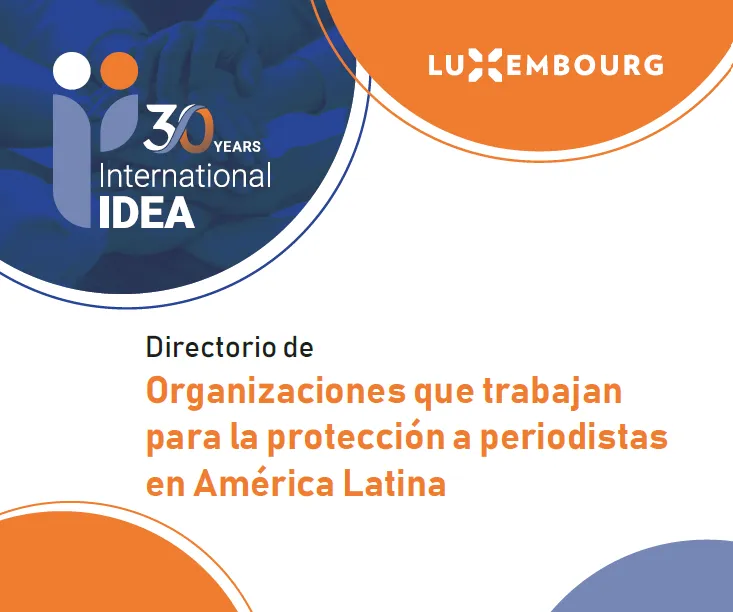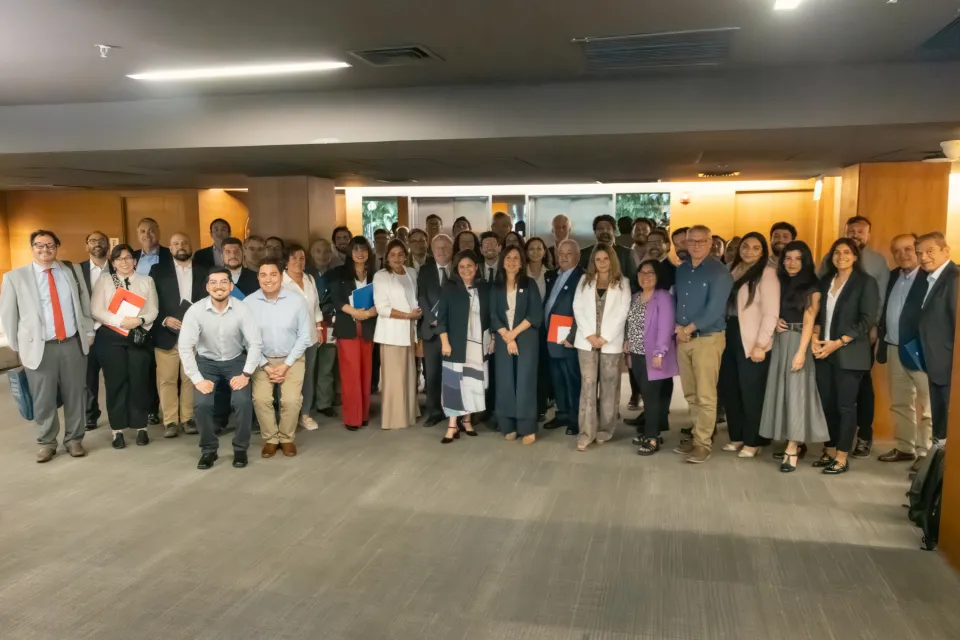El jueves 10 de diciembre, la Fundación Unión Europea-América Latina y el Caribe e IDEA Internacional firmaron un acuerdo marco de cooperación entre los dos organismos, con el interés de aunar sus esfuerzos e implementar un amplio abanico de actividades para cumplir sus objetivos institucionales: buscar una cooperación interregional entre Europa y América Latina, en pos de la democracia, los derechos humanos, la sustentabilidad, el Estado de Derecho y la inclusión social y de género.
Búsqueda
Region
Country
Type
"Illiberal democracy", Viktor Orban has told us, is the new wave of democracy. He is in some ways, unfortunately, right. We in the democracy field have been extremely clumsy in responding to this trend. We discuss "backsliding democracies" and "democratic decline", send off worried cables and press releases with a furrowed brow. But what we really are referring to is the rise of illiberalism. Democracy is embraced—elections are held in which the majority determines the outcome.
In 2015, the new Constitution of Nepal established a federal system of governance consisting of three spheres of governments —Federal, Provincial (Pradesh, 7) and Local (Palika, 753)— that exercise the state powers within the ambit of the Constitution and other laws.
This GSoD In Focus provides a brief overview of the global state of democracy at the end of 2019, prior to the outbreak of the pandemic, and assesses some of the preliminary impacts that the pandemic has had on democracy globally in 2020.
Key findings include:
Indonesia’s Head of Region elections (Pilkada) involving a little more than 100 million voters to elect 9 provincial governors, 37 mayors and 224 heads of regency (Bupati) are simultaneously held today. This is the largest one-day election held during the COVID-19 pandemic eclipsing the US General Elections, which, although larger in the number of voters, were held in more than one day through early-voting facilities.
Many governments are restricting information about COVID-19, clamping down on independent media and freedom of speech while polarisation and lack of political consensus have sparked unrest and distrust in elections and democratic processes.
El 1 de diciembre de 2020, la sesión del Consejo de Estados Miembros nombró a siete nuevos miembros para la Junta de Asesores por un período de tres años, desde 2021 hasta 2023.
IDEA Internacional se complace en dar la bienvenida a los nuevos miembros de la junta y espera trabajar estrechamente con ellos en los próximos años. A partir del 1 de enero de 2021, la Junta de Asesores de IDEA Internacional incluirá:
On 1 December 2020, the Council of Member States session appointed seven new Members to the Board of Advisers for three-year terms from 2021 to 2023.
“El que no vota no come” amenazó hace unos días Diosdado Cabello a la ciudadanía. Al número dos del régimen autoritario chavista le preocupa que ante la farsa electoral de este domingo, los venezolanos decidan no acudir a las urnas.
When constitutions are written in response to violent conflict or as part of a peace process, a key aim of constitution-building is to end the fighting and channel disputes through political institutions. Because of this, people at the negotiating table tend to be parties to the conflict, who are predominately men. When constitution-building responds to broad social unrest, in comparison, a key aim is to create a new social and political order.
Si los últimos procesos electorales en Venezuela han estado ya signados por la desconfianza, las elecciones pautadas para el 6 de diciembre, en las que se renovará íntegramente su Asamblea Nacional con un mandato de cinco años, han generado aún mayores cuestionamientos en su integridad.
If the most recent elections in Venezuela have already been marked by distrust, the election scheduled for 6 December, in which the entirety of its National Assembly will be renewed with a five-year term, has given rise to even more questions about its integrity.
The EU's European Democracy Action Plan and its upcoming Digital Services Act aim to regulate online political advertisements.
مكنت الاصلاحات الانتخابية التي شهدتها عدة دول في المنطقة العربية منذ عام 2000، من إعادة النظر في الوظيفة التنظيمية للانتخابات للاجهزة الحكومية، خاصة منها وزارات الداخلية، وتشكيل هيئات أو مفوضيات مستقلة عن السلطة التنفيذية لتنظيم الانتخابات. ويأتي هذا الخيار إستجابة للمطالب الشعبية والتزاماً من الدول التي انتهجته بضرورة النأي بالمسار الانتخابي عن كل تدخل وتوفير الضمانات اللازمة لنزاهته. وقد شهدت المنطقة العربية أول موجة لتشكيل الهيئات والمفوضيات واللجان الانتخابية المستقلة عام 2000.
Venezuela tiene previstas elecciones parlamentarias para el 6 de diciembre en las que renovará íntegramente su Asamblea Nacional con un mandato de cinco años.
Venezuela has scheduled parliamentary elections for 6 December where it will completely renew its National Assembly for a five-year term. Andrés Bello Catholic University (UCAB) and International IDEA published a report to provide a diagnosis and conclusions on the election, as well as to formulate recommendations on key aspects of electoral integrity.
El pasado viernes 27 de noviembre se firmó el Acuerdo de Sede entre el Ministerio de Relaciones Exteriores de la República de Panamá y el Instituto Internacional para la Democracia y Asistencia Electoral (IDEA Internacional) para el establecimiento de su oficina regional para América Latina y El Caribe en la Ciudad de Panamá. La República de Panamá se incorporó como Estado miembro de IDEA Internacional el 9 de diciembre de 2018.
Last Friday, on November 27, the Host Country Agreement for the establishment of International IDEA´s Regional Office for Latin America and the Caribbean in Panama City was signed between the Ministry of Foreign Affairs of the Republic of Panama and the International Institute for Democracy and Electoral Assistance (International IDEA). Panama´s admission as a member state of International IDEA came into force on December 9, 2018.
International IDEA celebrated its 25th Anniversary on the 19-20 of November through a 25-hour conference, "Democracy Now and Next." During the meeting, the Institute showcased its thematic expertise through 12 sessions and 63 speakers organized by our regional and country offices. The conference generated a global conversation about the future of democracy and the role of International IDEA.
On 3 February 2020, the High Court of Malawi sitting on constitutional matters nullified the presidential election that was held on 21 May 2019. That decision was upheld by the Supreme Court of Appeal on 8 May 2020.


